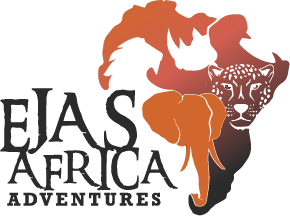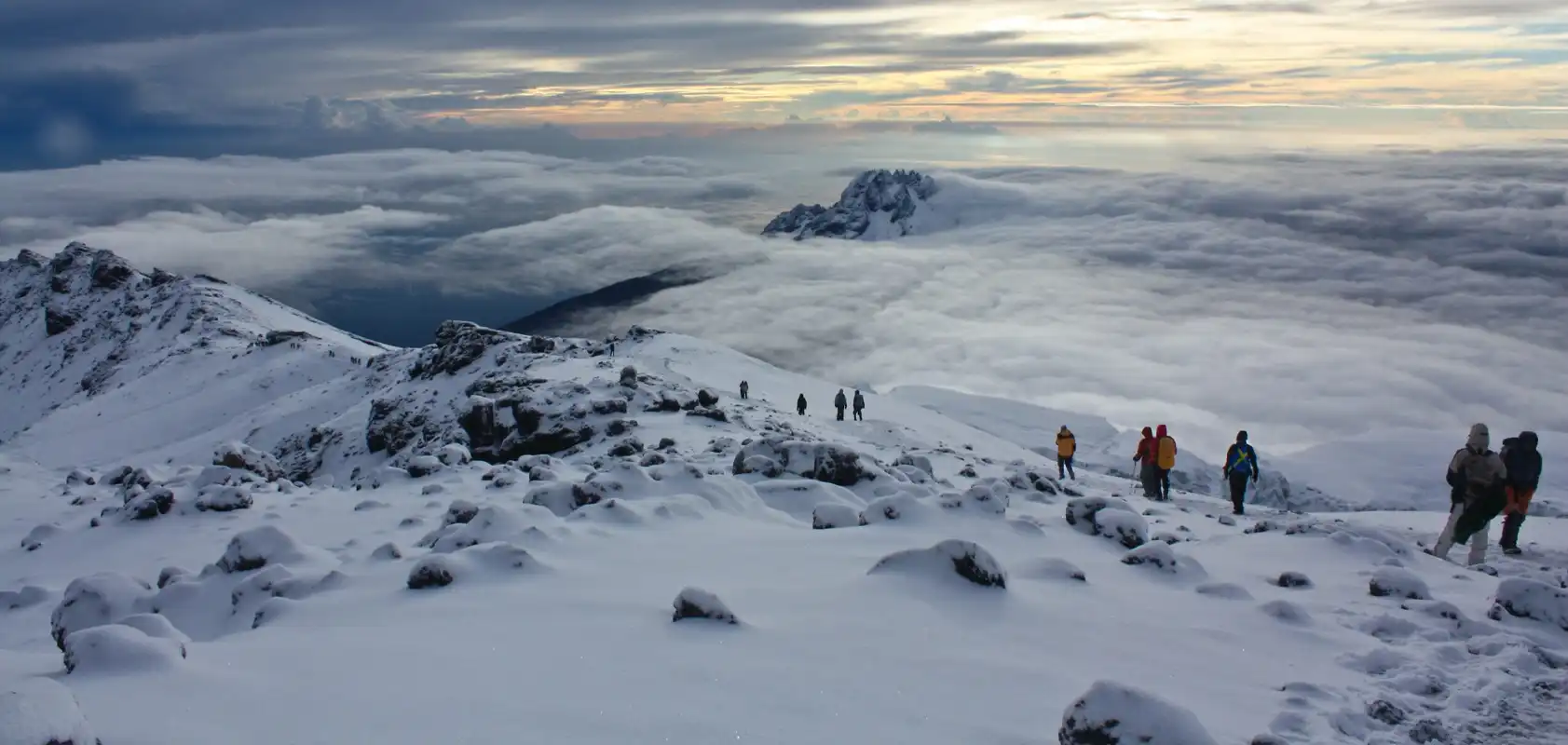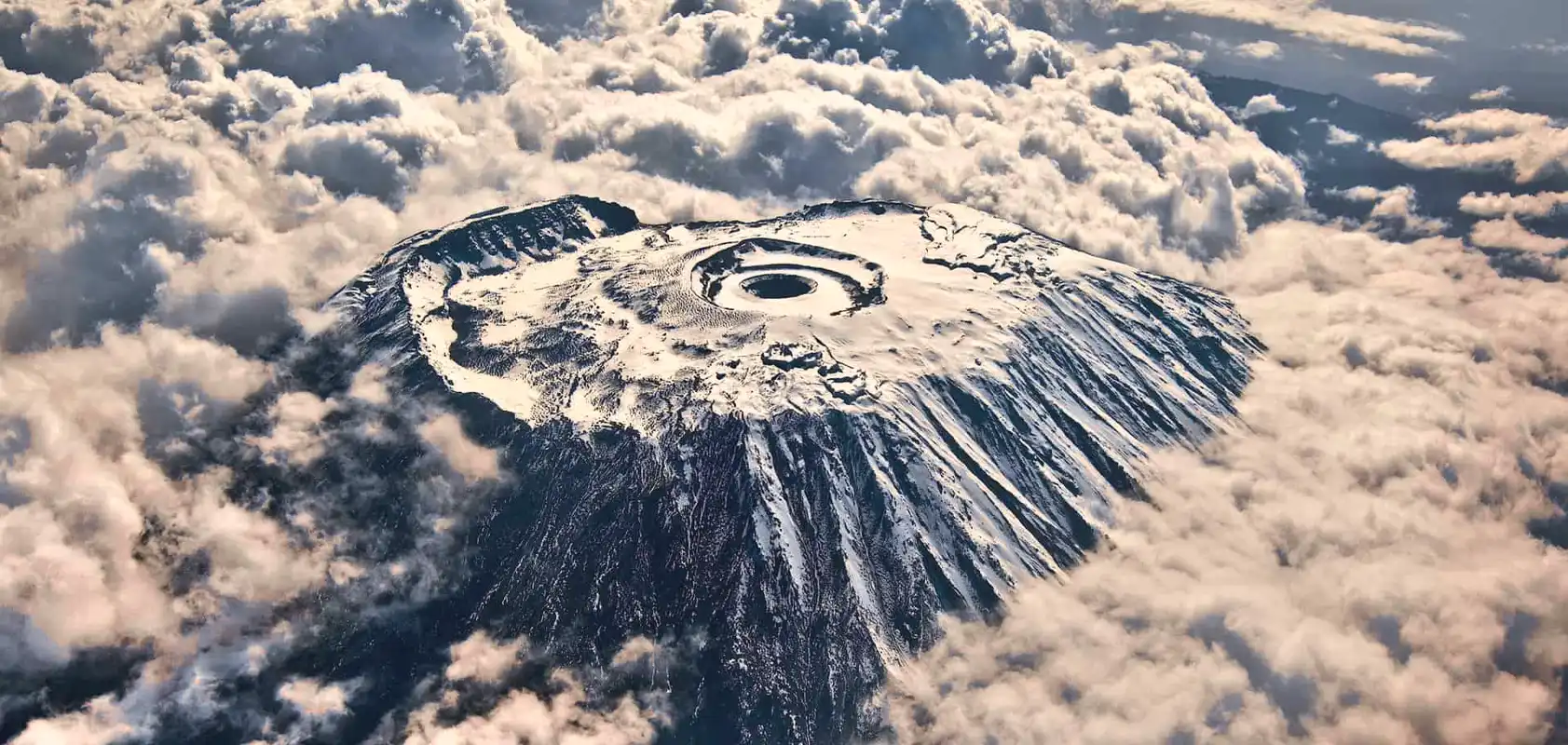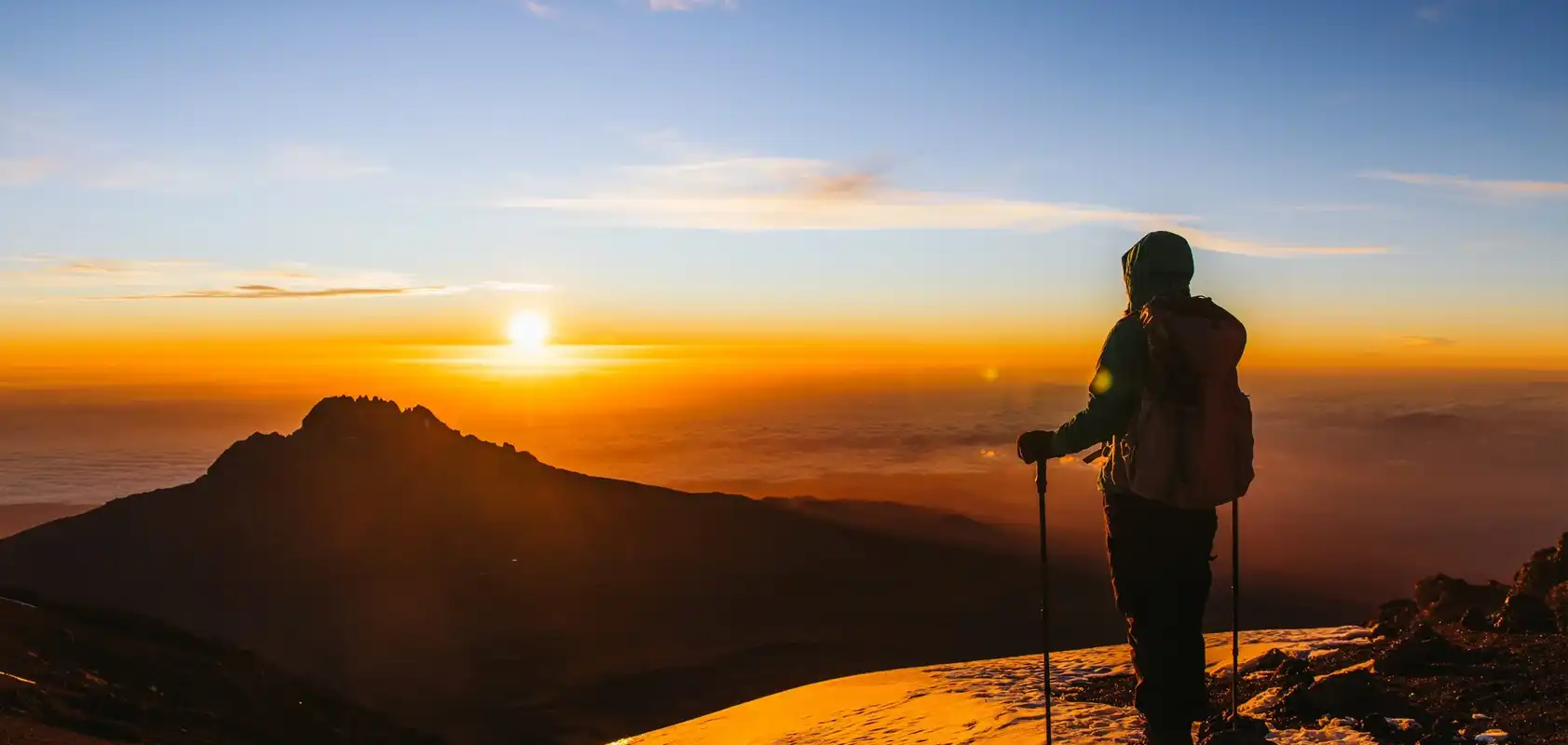Kilimanjaro Climbing
Let’s Take You To The Top Of Africa
What Is Mount Kilimanjaro
Kilimanjaro climbing stands as an unparalleled adventure, with the majestic peak soaring 5,895 meters (19,340 feet) above sea level, making it the highest free-standing mountain globally and earning the title of the ‘Roof of Africa.
Every year, over 40,000 adventurers are drawn to its allure, seeking the thrill of conquering its slopes. What sets Kilimanjaro apart is its accessibility; climbers don’t need advanced technical skills, just a good level of fitness. It often marks the beginning of the Seven Summits journey for many.
With over a decade of experience guiding climbers to Kilimanjaro’s summit, we at Ajes Africa Adventure have meticulously crafted this guide to ensure your once-in-a-lifetime adventure is unforgettable.
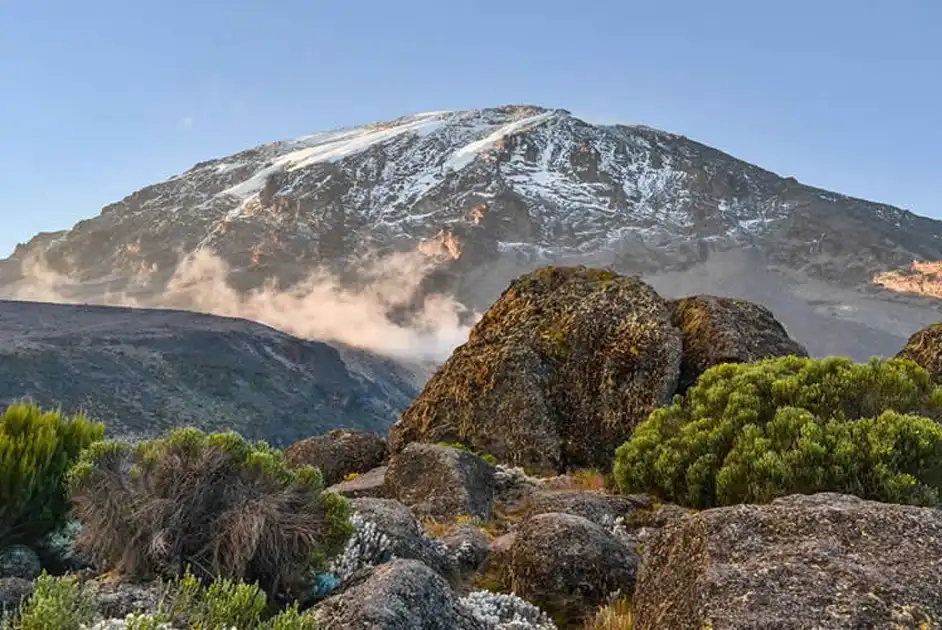
Kilimanjaro Climbing Routes
There are seven routes to climb Mount Kilimanjaro. They all vary according to the price, scenery, difficulty, duration, popularity, success rate and accommodation options. From them, iconic mountain Kilimanjaro offers 5 prime routes. The top recommended Kilimanjaro Routes are;
- Marangu Route – the only route which offers hut accommodation.
- Machame Route – the popular route with scenic view and called as Whiskey route.
- Lemosho Route – the only route with highest summit success rate raging more than 95%.
- Northern Circuit Route – the longest route of all the Kilimanjaro climbing routes, which also has a best acclimatization time.
- Rongai Route – considered to be the least crowded route and quietest of all.
Who Can Climb Kilimanjaro? Anyone from children over the age of 10 to older generations in their 60s and 70s! All you need is the strength of mind and the willingness to get to the summit. The real difficulty with Kilimanjaro Climbing is the altitude and the rate of ascent. Don’t hesitate, we will be with you every step of the way! Our Kilimanjaro Climbing Guides are highly expert professionals and are a main factor in your success.
How To Climb Mount Kilimanjaro? The tour operator will pick you up from the Airport and you can get yourself prepared in the designated lodge. Once you meet your guide, you will be explained regarding the complete Climb Mount Kilimanjaro Packages. The weight of your gear will be checked and further proceeded to the gate where you will start Climbing Mount Kilimanjaro. You will be accompanied by a Kilimanjaro porter and guide on the climb. Remember, slow and steady wins the race. You should give more time for yourself to acclimatize the body and have a successful Kilimanjaro Climbing Summit.
Kilimanjaro Climbing Packages
TOP Classic Mount Kilimanjaro climbing Itineraries
Kilimanjaro itineraries typically range from five to nine days, with routes such as Marangu, Machame, and Lemosho offering varying levels of difficulty and scenic diversity. Each route provides a unique experience, from lush rainforests to alpine deserts, culminating in the breathtaking view from Uhuru Peak.
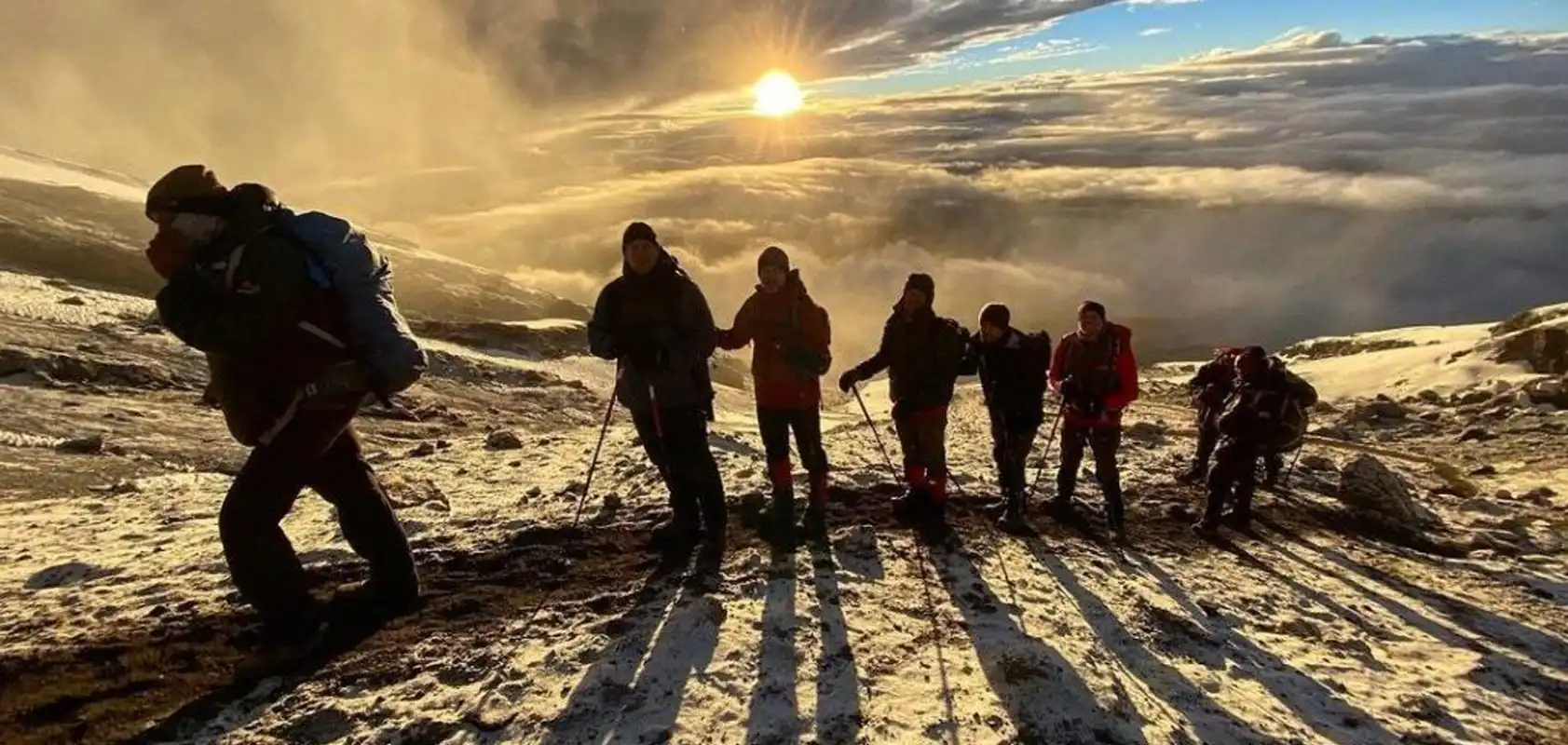
5 Days Marangu Route
5 Days 4 Nights Kilimanjaro Climb Marangu Route
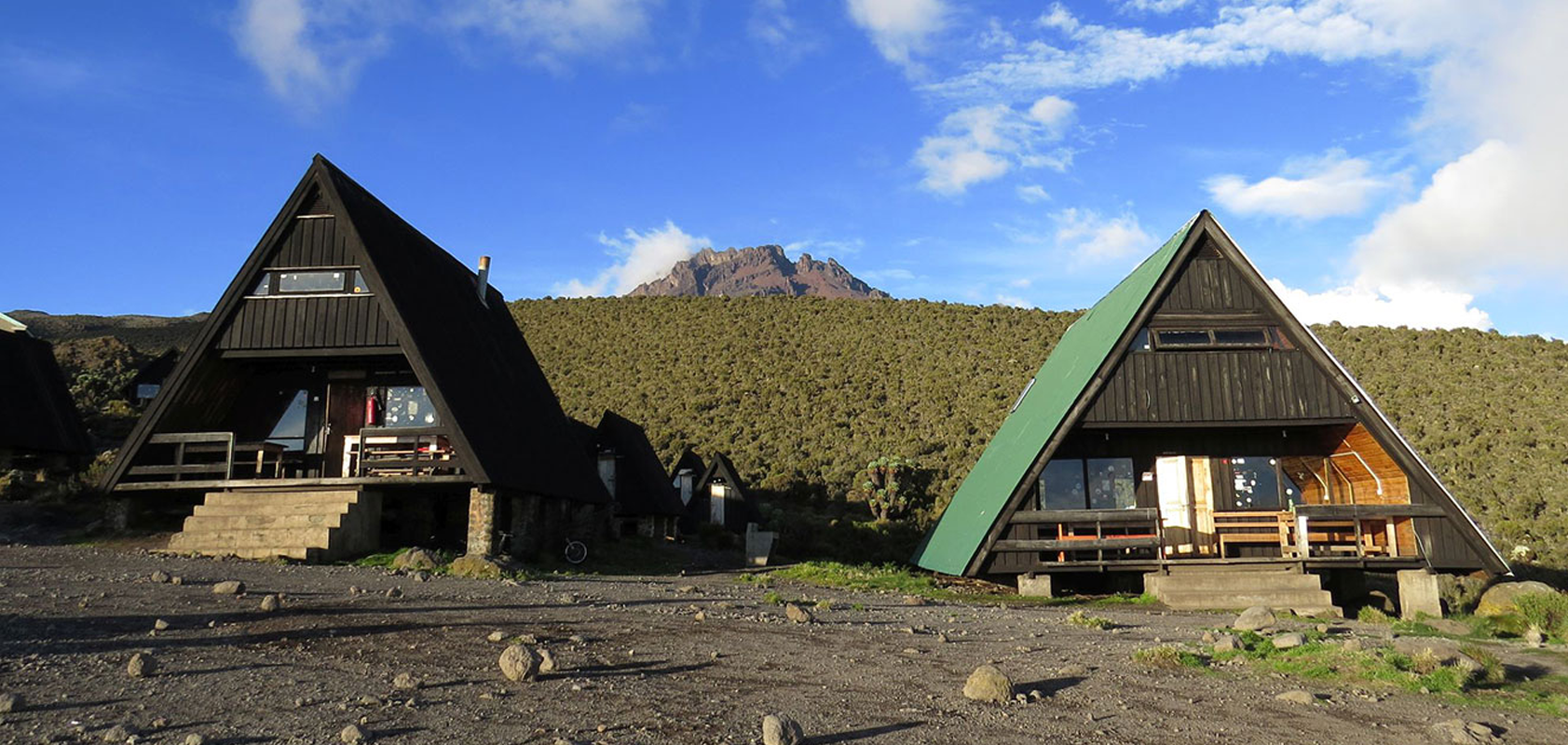
6 Days Marangu Route
6 Days 5 Nights Kilimanjaro Climb Marangu Route
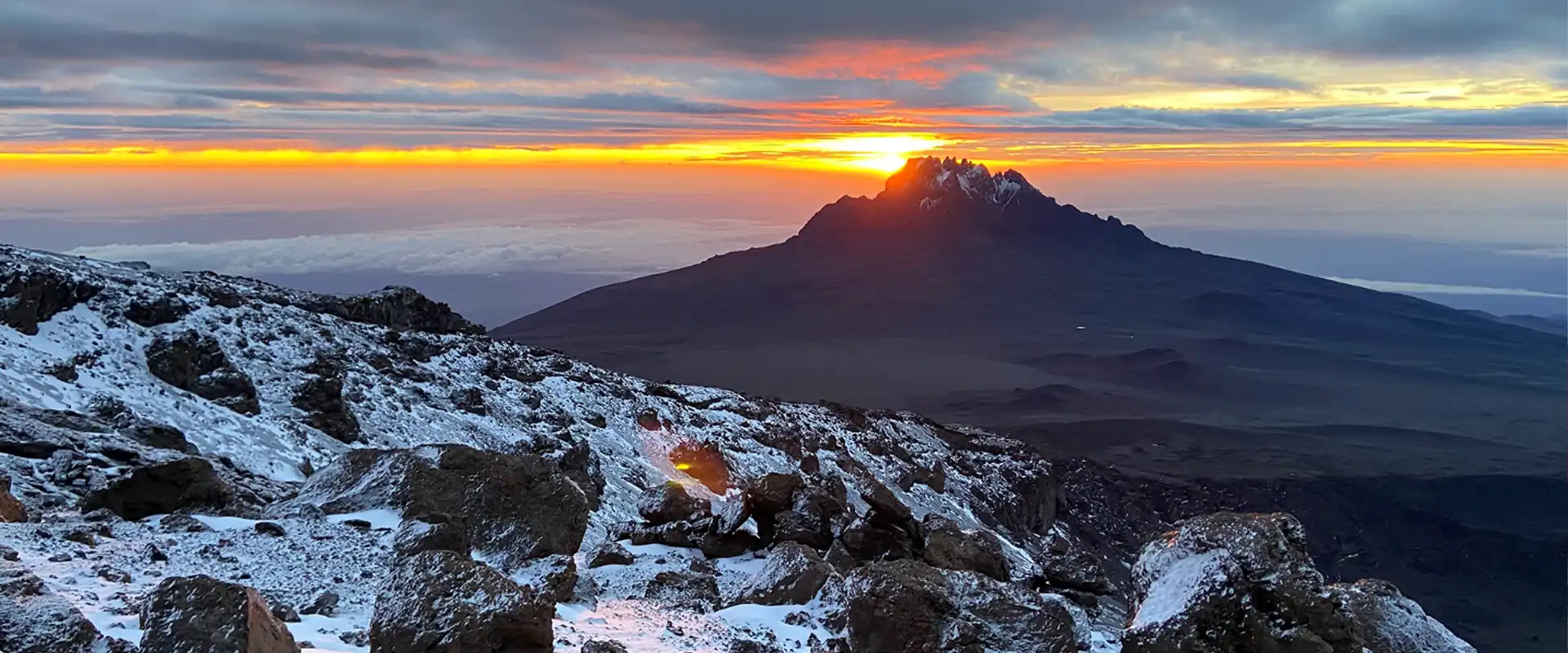
6 Days Machame Route
6 Days 5 Nights Kilimanjaro Climb Machame Route
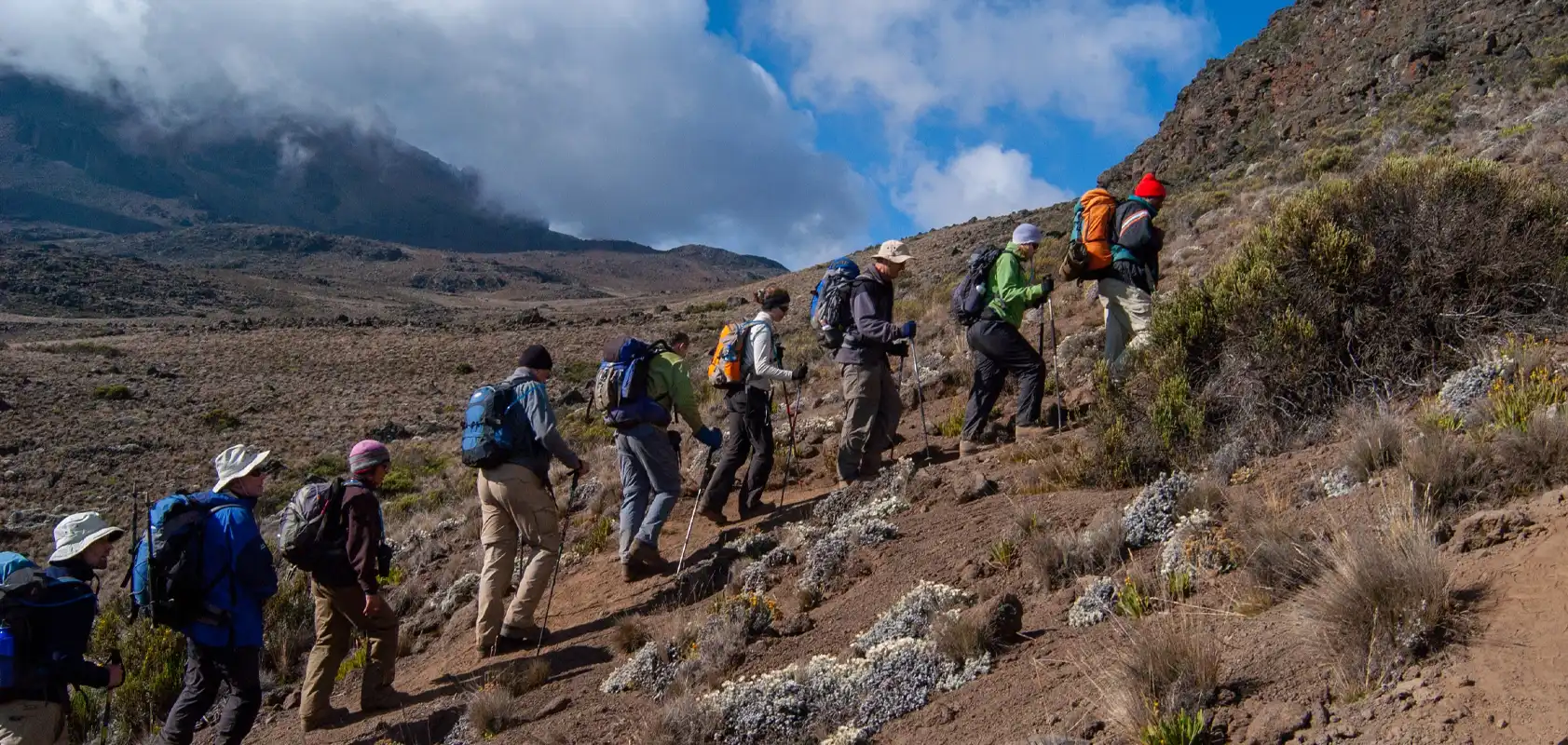
7 Days Machame Route
5 Days 4 Nights Kilimanjaro Climb Machame Route
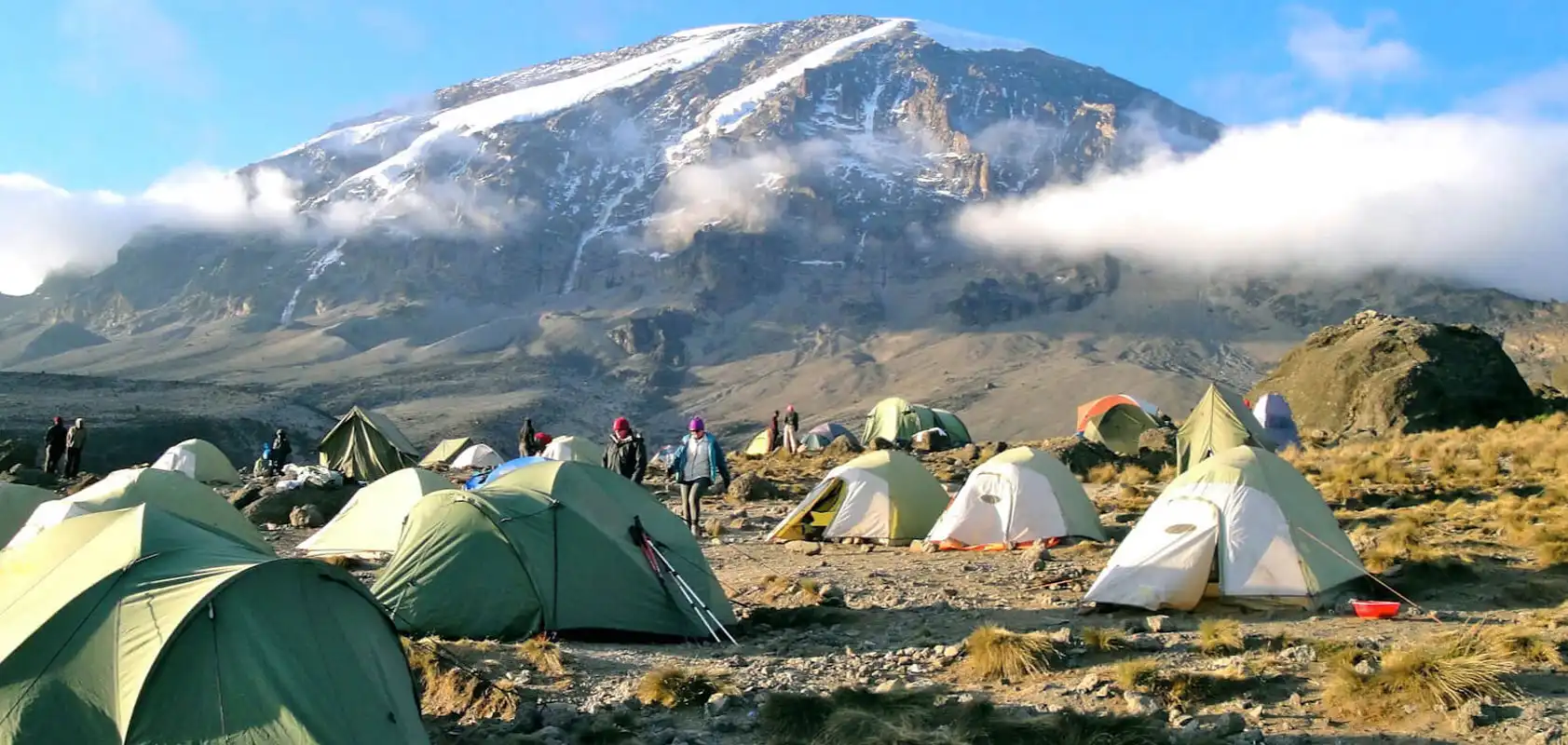
7 Days Lemosho Route
7 Days 6 Nights Kilimanjaro Climb Lemosho Route
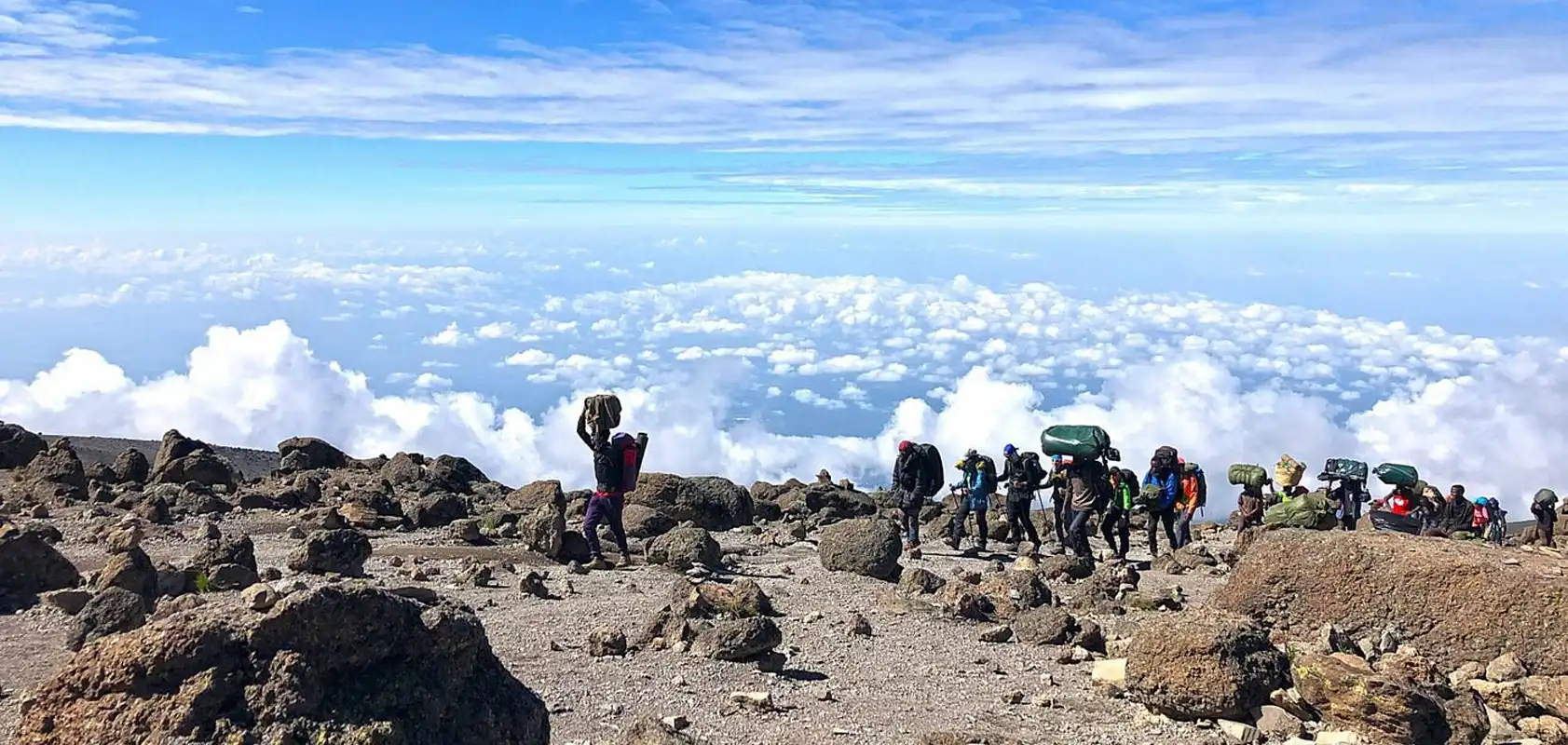
8 Days Lemosho Route
8 Days 7 Nights Kilimanjaro Climb Lemosho Route
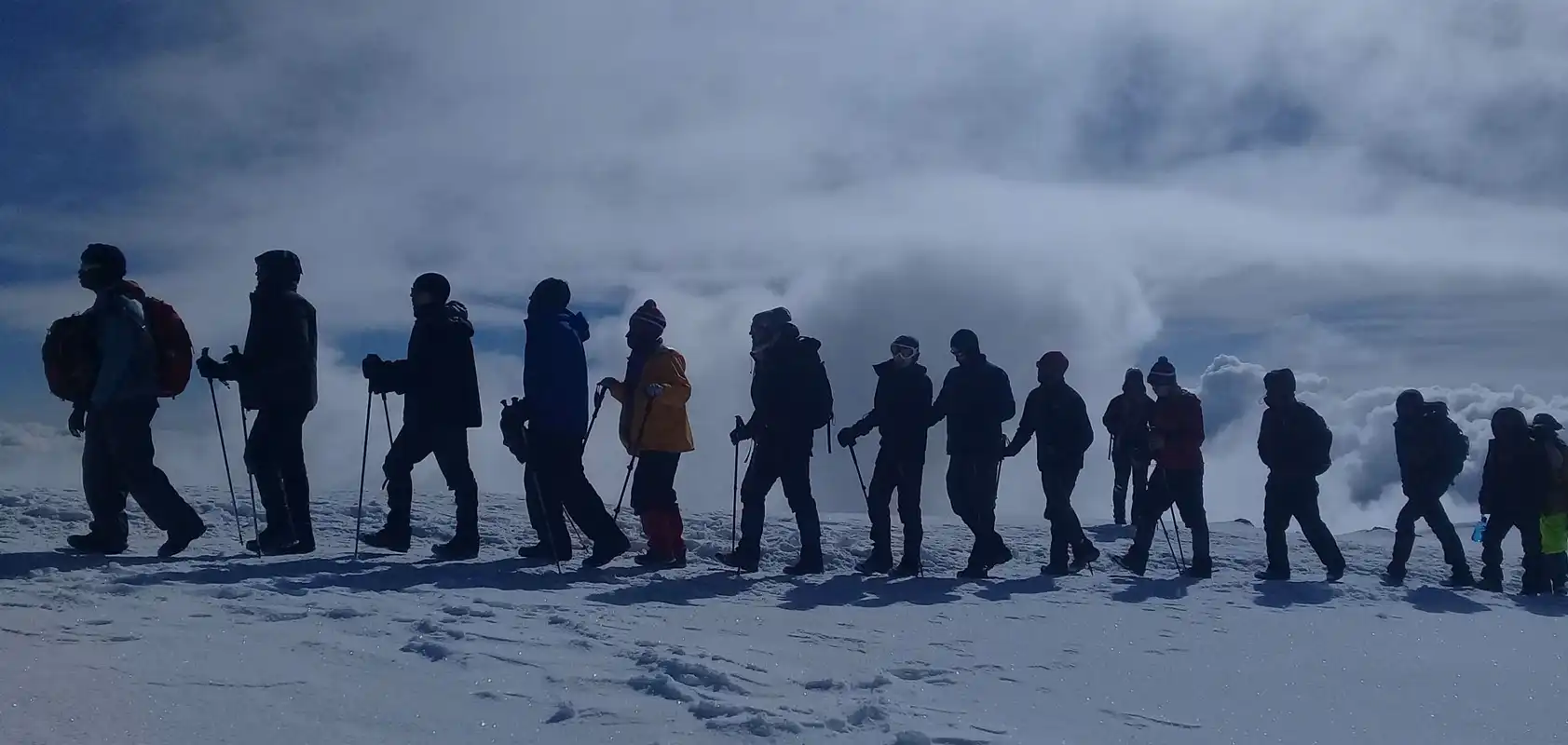
8 Days Northern Circuit
8 Days 7 Nights Kilimanjaro Climb Northern Circuit Route
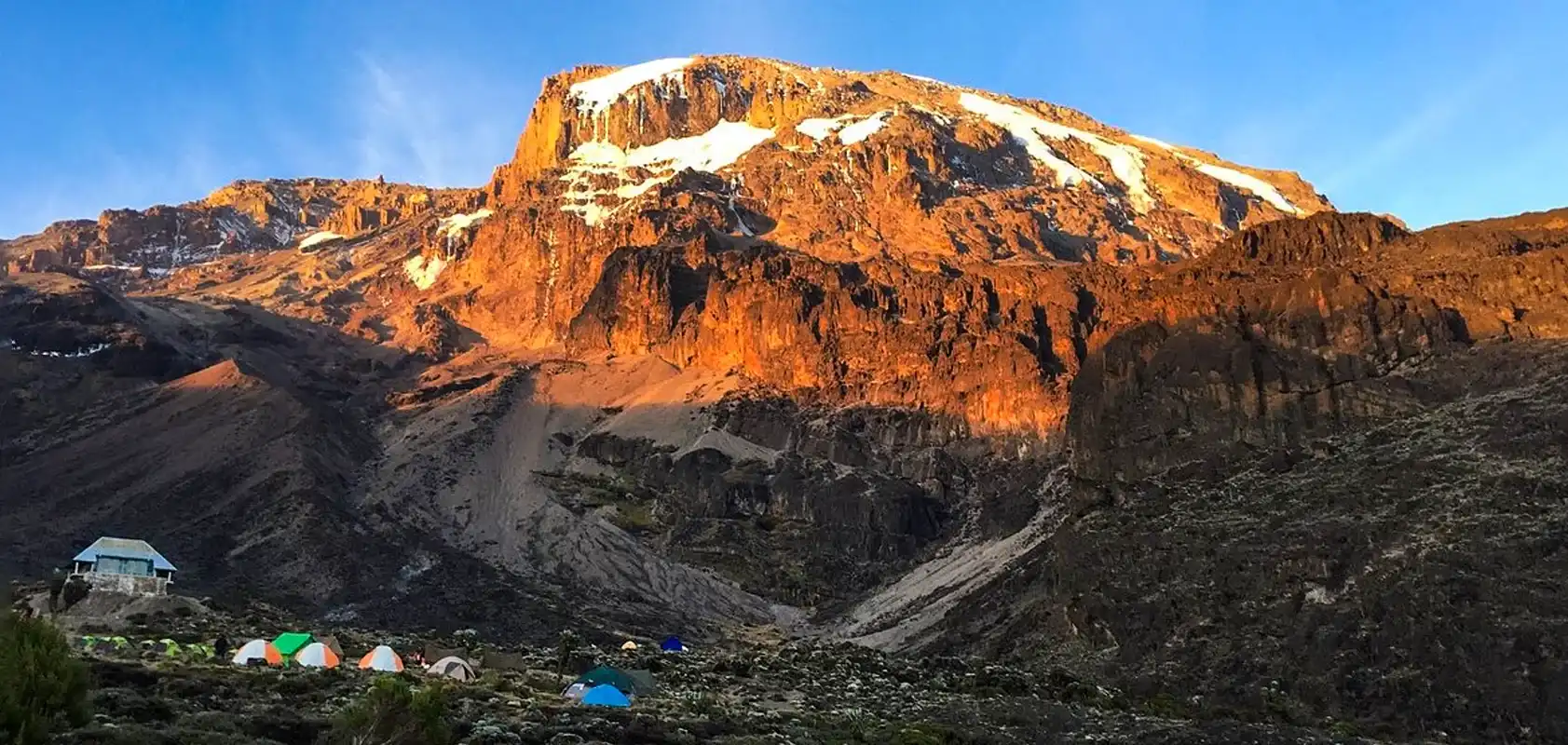
9 Days Northern Circuit Route
9 Days 8 Nights Kilimanjaro Climb Northern Circuit Route
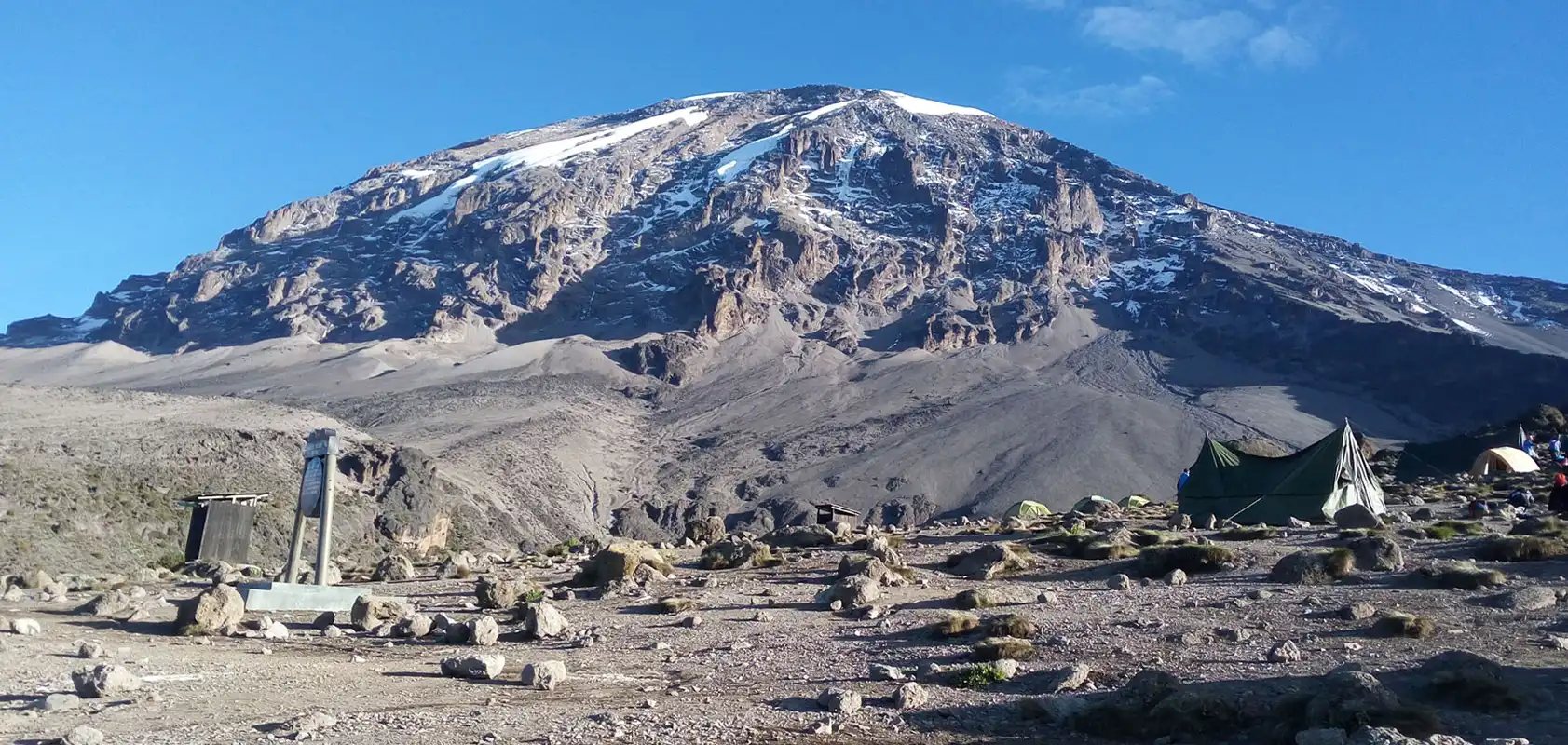
6 Days Rongai Route
6 Days 5 Nights Kilimanjaro Climb Rongai Route
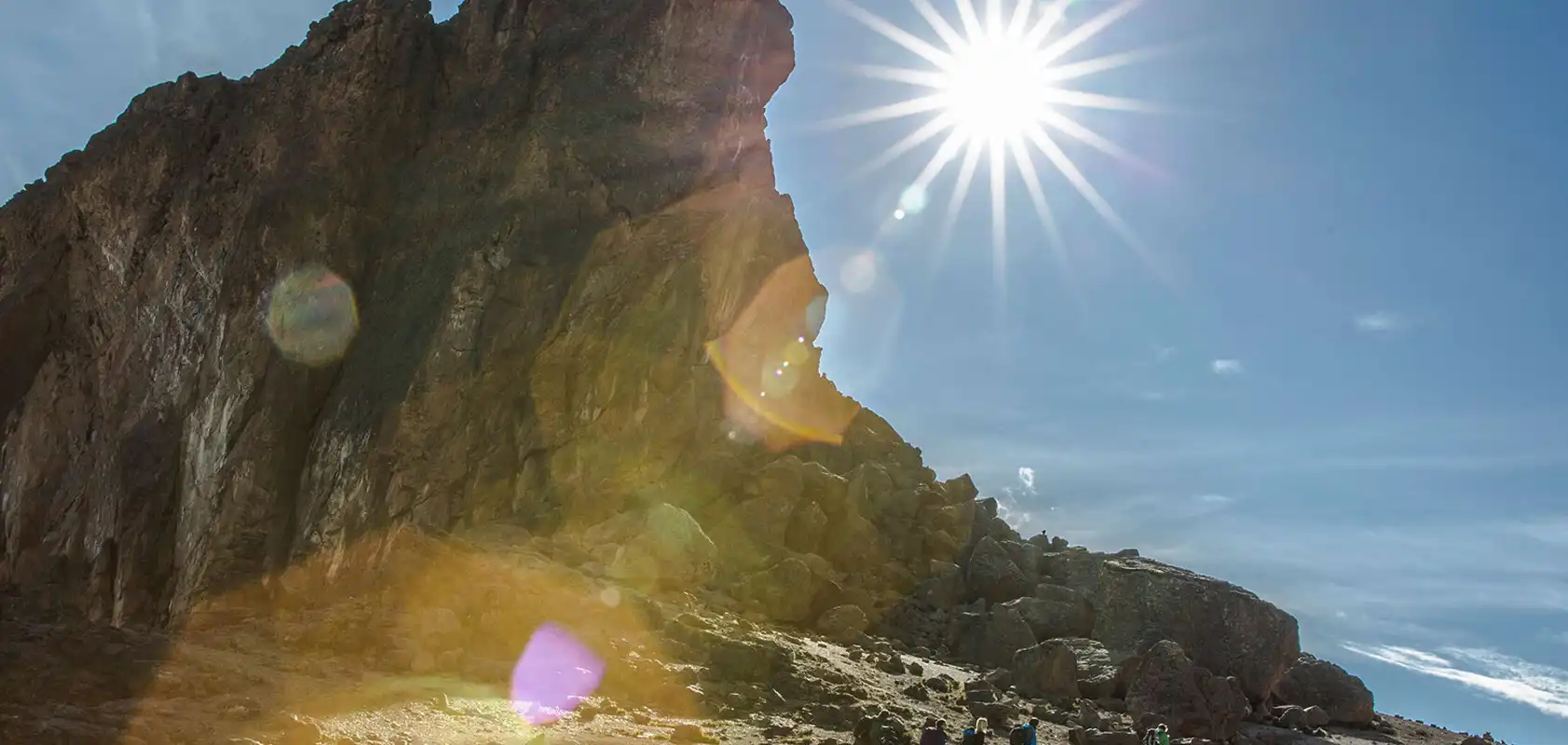
7 Days Rongai Route
7 Days 6 Nights Kilimanjaro Climb Rongai Route
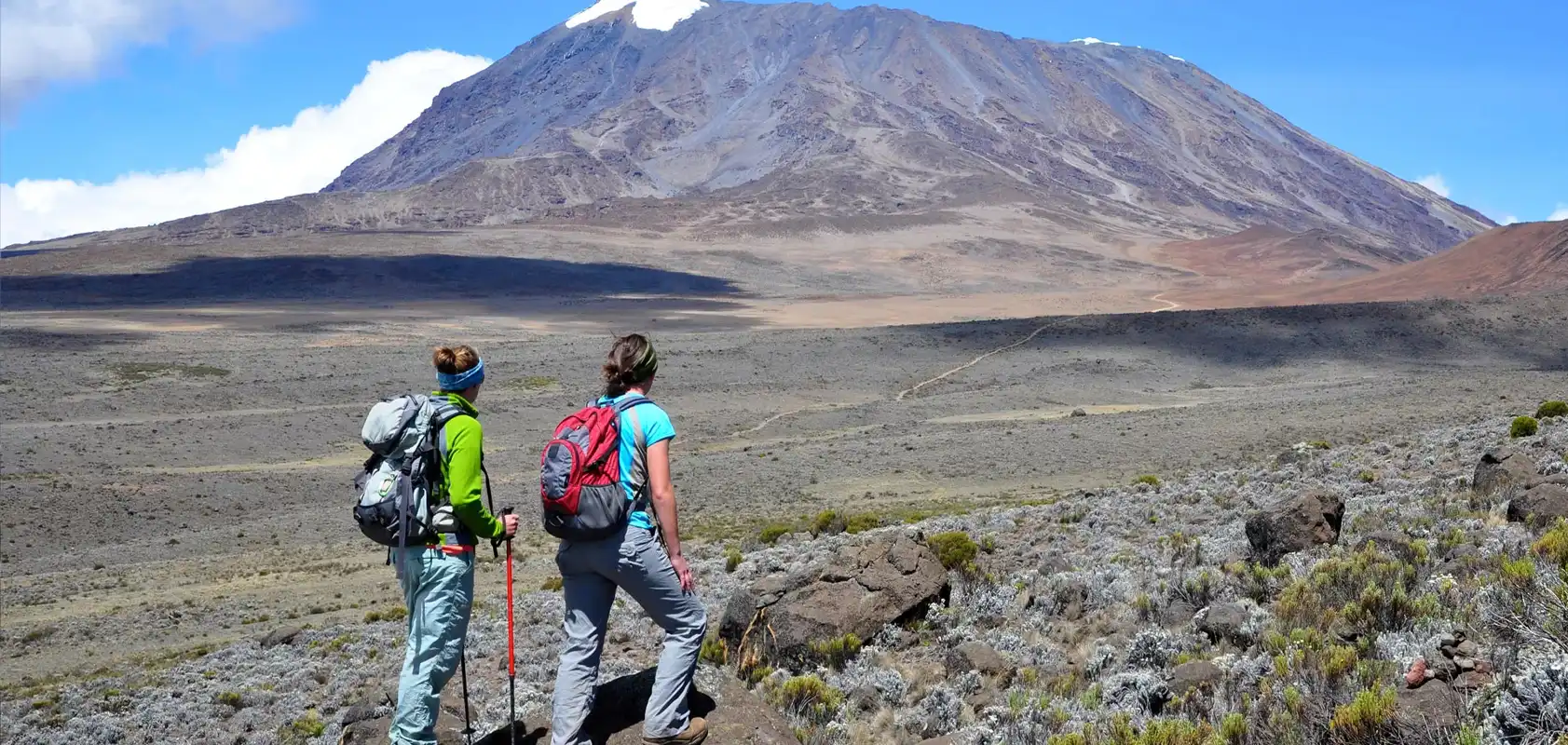
6 Days Umbwe Route
7 Days 6 Nights Kilimanjaro Climb Umbwe Route
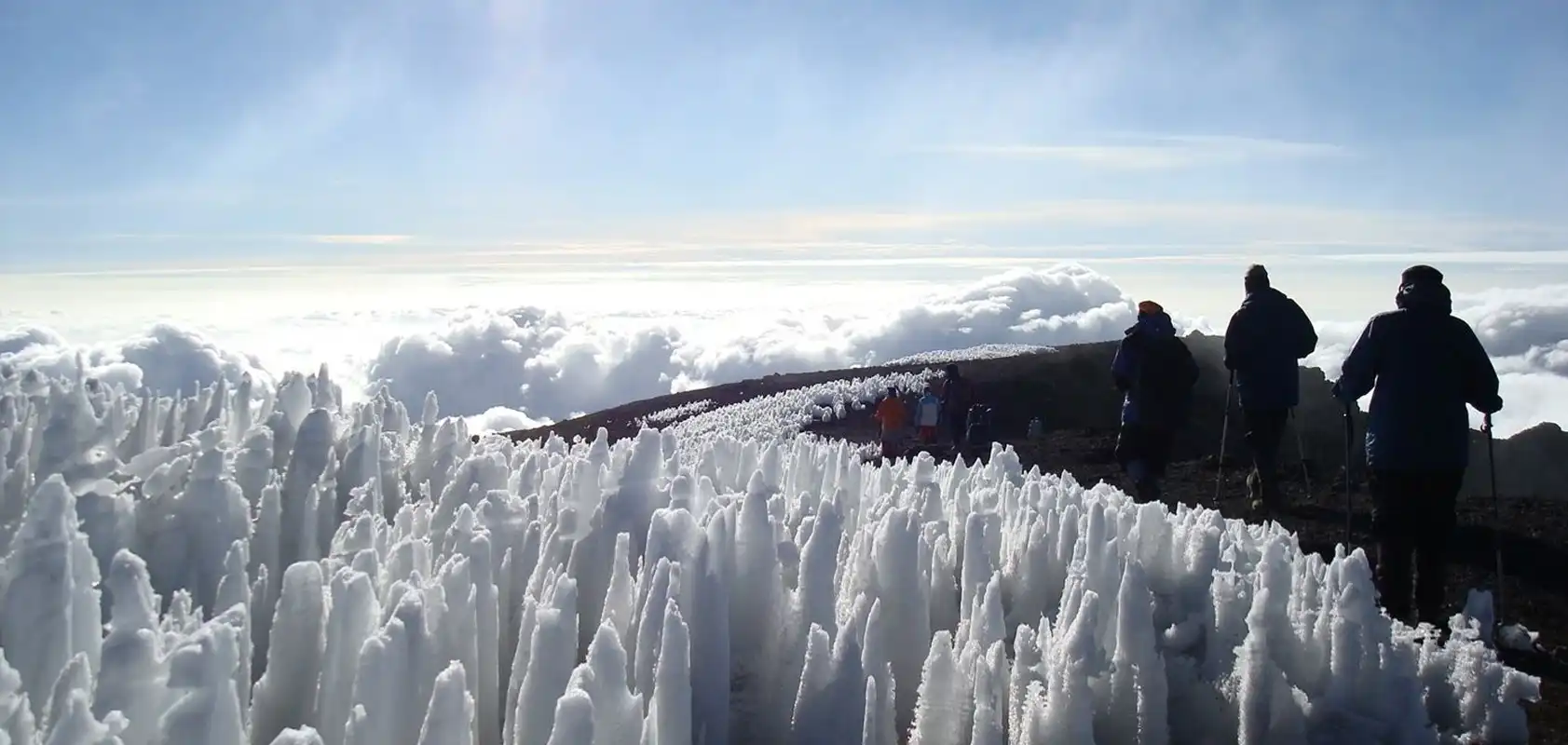
6 Days Shira Route
6 Days 5 Nights Kilimanjaro Climb Shira Route
Mount Kilimanjaro Climbing Guide
We've gathered essential insights to prepare you for your Kilimanjaro climb. Discover valuable hints, tips, tricks, and recommendations in our comprehensive, free guide
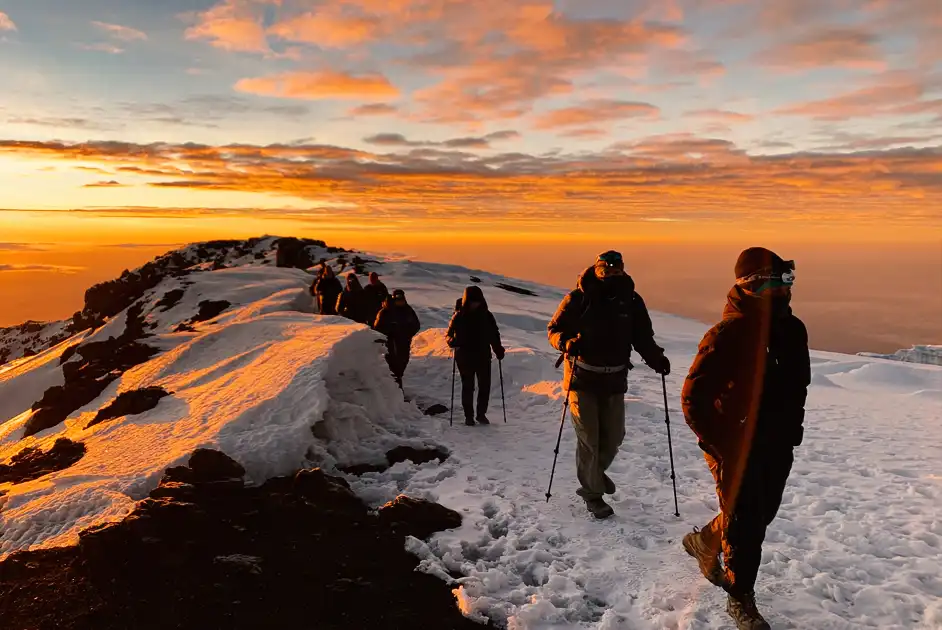
Mount Kilimanjaro Climbing FAQs
What is Mount Kilimanjaro?
Mount Kilimanjaro is the highest peak in Africa, located in Tanzania. It’s a dormant volcano and one of the most famous mountains in the world.
How tall is Mount Kilimanjaro?
The summit of Mount Kilimanjaro stands at approximately 5,895 meters (19,341 feet) above sea level.
Is climbing Mount Kilimanjaro difficult?
Climbing Kilimanjaro can be challenging due to the altitude and varying weather conditions, but it doesn’t require technical climbing skills. However, proper physical conditioning and acclimatization are essential.
How long does it take to climb Mount Kilimanjaro?
The duration of the climb varies depending on the route chosen. Typically, it takes between 5 to 9 days to complete the ascent and descent.
What are the different routes to climb Mount Kilimanjaro?
There are several routes to the summit, including the Marangu, Machame, Lemosho, Rongai, and Northern Circuit routes. Each route varies in duration, difficulty, and scenery.
When is the best time to climb Mount Kilimanjaro?
The best time to climb Kilimanjaro is during the dry seasons, which are typically from late June to October and from December to February. These months offer clearer skies and better trekking conditions.
Do I need a guide to climb Mount Kilimanjaro?
Yes, it’s mandatory to have a guide to climb Kilimanjaro. Guides help navigate the routes, ensure safety, and provide assistance in case of emergencies.
What should I pack for climbing Mount Kilimanjaro?
Essential items include appropriate clothing for varying temperatures, sturdy hiking boots, a sleeping bag, sunscreen, sunglasses, and personal medication. It’s crucial to pack light but adequately for the journey.
What are the risks associated with climbing Mount Kilimanjaro?
The main risks include altitude sickness, extreme weather conditions, and physical exhaustion. Adequate preparation, proper acclimatization, and following safety guidelines can mitigate these risks.
Is climbing Mount Kilimanjaro environmentally friendly?
Sustainable climbing practices are essential to minimize environmental impact. It’s important to follow Leave No Trace principles, respect local customs, and support responsible tour operators that prioritize environmental conservation and community development.
